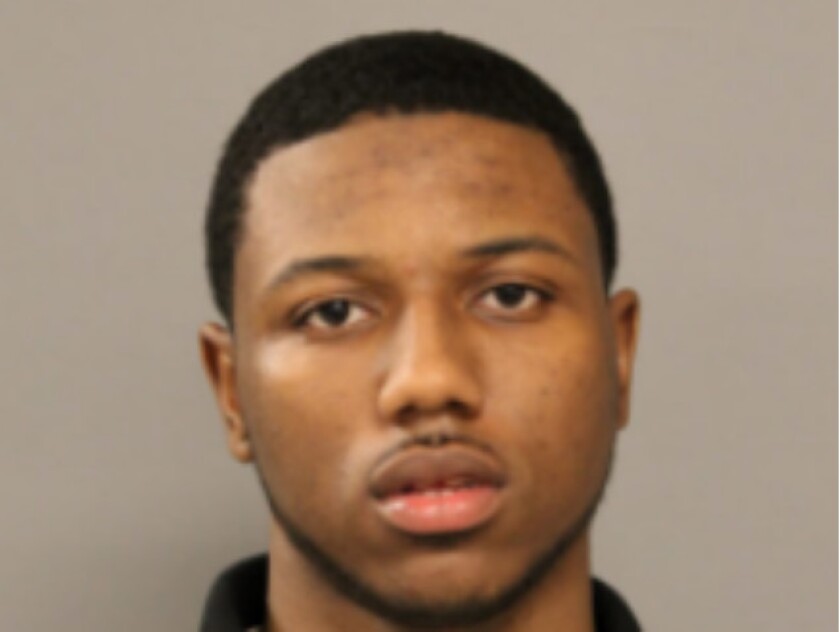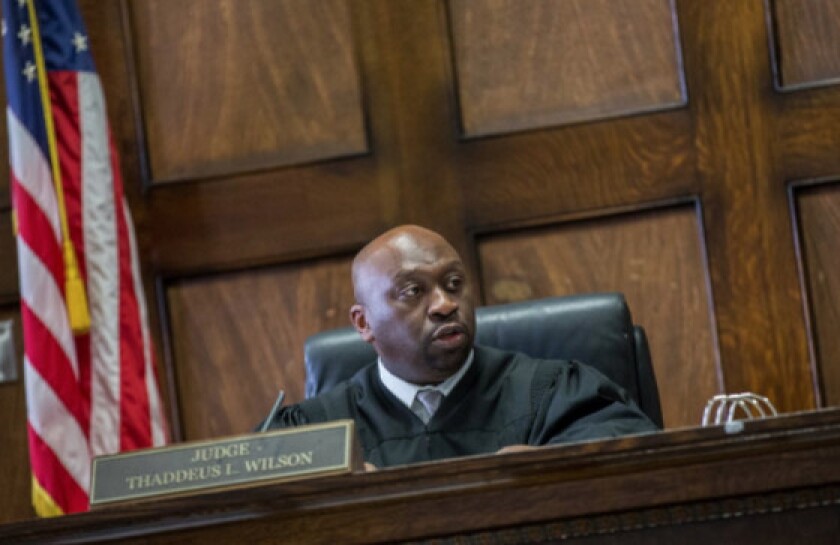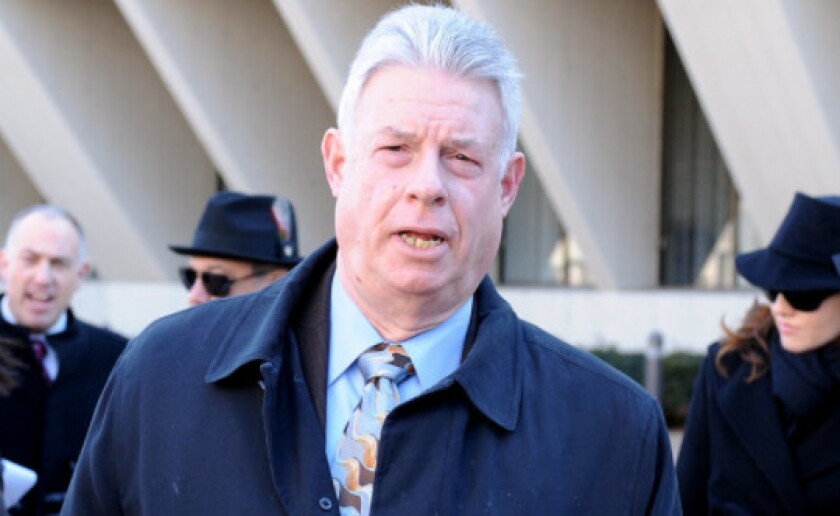The aim of the law was simple: Repeat gun offenders in Illinois would face tougher sentences.
But a Chicago Sun-Times review of sentences in Cook County since that new law took effect in January has found that no one is actually being hit with those stiffer sentences.
There hasn’t been a single case in Cook County in which a judge has meted out those extended sentences that Mayor Rahm Emanuel and police Supt. Eddie Johnson pushed for and that they and sponsor Sen. Kwame Raoul, D-Chicago, said would happen under the law.
That’s according to a Sun-Times examination of the first four months under the repeat gun-offender measure that Gov. Bruce Rauner signed into law last summer.
Thanks to the way the law was written, no one sentenced in that period even qualified for one of the tougher prison terms.
The law was proposed after the shooting death in 2013 of 15-year-old Hadiya Pendleton, the Chicago honors student gunned down at a park on the South Side a week after performing as a majorette with her King College Prep classmates at President Barack Obama’s second inauguration. The measure didn’t go anywhere then because of concerns it was too harsh and would fill prisons with young, black men.
A compromise finally was enacted after the number of killings in Chicago shot up by about 50 percent in 2016 over the year before, hitting a nearly two-decade high.
Emanuel and Johnson had long complained that part of the problem was that Illinois law didn’t require judges to throw the book at criminals repeatedly convicted of gun crimes.
Johnson went to Springfield to push for passage of what was dubbed the Safe Neighborhoods Reform Act, a bundle of tweaks to the law that included one change in particular he predicted would create “a mental culture not to pick up a gun” and reduce gun violence in Chicago by a remarkable 50 percent within a year — an assertion that Democratic Rep. Sonya Harper, an Englewood native who represents that and other parts of the South Side, called “the biggest lie I’ve ever heard in Springfield.”
That change would target the repeat offenders Johnson said are the most likely to use a gun in a crime by boosting the minimum sentences for adults repeatedly convicted of illegal gun possession.
Judges would still be allowed discretion in deciding the sentences in these cases but be required to explain why if they do so.
With bipartisan support and the backing of newspaper editorial boards, the bill was passed.
And Emanuel, Johnson and Raoul, the South Side legislator who helped shepherd the bill through Springfield, all claimed victory after it was signed by the governor, who marked it as a rare legislative victory for his first term in office.
Under the new law, the minimum sentence for aggravated unlawful use of a weapon — the legal name for illegal gun possession in Illinois — went up to six years from three. And the minimum sentence for being a felon in possession of a weapon rose to seven years from three.
Only those with a prior conviction for a violent crime, such as carjacking, or with a previous gun-possession conviction qualify to be sentenced under the new law.
But they still can be given a lesser sentence if a judge provides a reason why following the new sentencing guideline would be “unduly harsh.” Judges are supposed to weigh factors such as a defendant’s maturity, likelihood to be rehabilitated and whether the person was threatened or otherwise forced to carry a gun.
The Sun-Times examined cases that were filed in Cook County since the law took effect in which illegal gun possession was the most serious charge and the defendant has already been sentenced.
Between Jan. 1 and May 1, 39 people in Cook County were sentenced in cases fitting those criteria. Every one of those defendants, whose average age was 22, pleaded guilty.
Fourteen men were sent to prison. Their sentences ranged from a low of one year in prison to a high of three years — all sharply below the minimums set out under the new law.
None had a prior conviction that would have qualified them for the new, harsher minimum sentences, according to interviews and an examination of their criminal histories.
Among them was Teon Ticey, a 20-year-old South Sider arrested for illegal gun possession early this year after also having been arrested for that in 2017. In each case, Chicago police officers said he was carrying a gun while riding in a car.
On April 17, Ticey pleaded guilty to both offenses — at the same court date, so his first and second convictions happened simultaneously, a move that spared him from being eligible for the new, longer sentence based on having a prior conviction.
“Because you have no prior felony conviction, you are not eligible for an extended term” under the new law, Cook County Circuit Judge Mary Margaret Brosnahan told Ticey before sentencing him.
Cook County prosecutors had asked for a three-year combined prison term, according to a transcript of the sentencing hearing.
He was sentenced to a year in prison for the 2017 crime and an additional year and a half for the 2018 arrest. He’s scheduled to be paroled next February.
Twenty-three of the 39 the cases the Sun-Times found resulted in a sentence of probation. Most of the defendants in those cases were under 21, allowing them to benefit from a part of the Safe Neighborhoods legislation that was inserted to garner support from sentencing-reform advocates.
The law says that anyone under 21 who is charged with possessing an illegal gun but hasn’t previously been convicted of a violent crime can be sentenced to probation.
That probation-only clause was one of the compromises that helped get the law passed.
In three of those probation cases, Cook County Circuit Judge Thaddeus Wilson ordered defendants to do a book report — a condition the judge has been assigning in probation cases since 2011. They could choose any book from a list they were given. But each one picked “Inner City Miracle” by Judge Greg Mathis, the former Detroit judge and onetime “kid criminal” best known as the star of the syndicated TV show “Judge Mathis.”
In two other cases, one defendant was sentenced to 50 hours of community service, and the other was sent to the Cook County sheriff’s vocational rehabilitation impact center for 180 days.
The law is, in a sense, a test. It expires in 2023 unless the Illinois General Assembly extends it.
Raoul, who’s the Democratic candidate for attorney general in November’s election, says: “It’s early yet to determine what the impact of the law is. I think it will take a few years to get a full sense of what it is. Certainly so far, though, the fears of a mass-incarceration effect are not coming to fruition, and I understood that to be the case when we passed the law. It was just giving a tool to deal with a narrow group of repeat offenders who are the biggest threat to public safety.”
Judges say they expect to begin sentencing people who would qualify for the harsher prison sentences later this year. Gun cases often can take year to move through the courts. Court insiders say some gun-possession defendants who’d qualify for a longer minimum sentence are likely to go to trial rather than plead guilty to a charge that could send them to prison for six years or longer.
The Sun-Times’ analysis didn’t look at cases in which the defendant was charged with both illegal gun possession and being an “armed habitual criminal” — a charge that calls for even more prison time for those caught with an illegal weapon.
That law, passed in 2005, applies to anyone with more than one felony conviction for any crime, violent or otherwise — who gets caught with a gun. It carries a minimum sentence of six years — with no discretion for a judge to go easy — and a maximum of 30 years.
Cook County State’s Attorney Kim Foxx’s office has filed nearly 300 armed habitual criminal charges so far this year and did so 765 times last year, according to spokesman Robert Foley.
Retired Cook County Judge Dan Locallo says that no matter what Springfield does and no matter what public officials proclaim, the effect on crime of any law to raise sentences is likely to be minimal based on the realities of the streets of Chicago and the functioning of the courthouse.
“The Legislature, they want to go back to their constituents and say, ‘Look how tough I am, I increased the penalties on charge X,’ ” Locallo says. “Well, we had the death penalty at one time. Did that have an effect on murders?
“Sometimes, these guys are carrying a gun because they think it’s dangerous not to have one. Some guys get six years, some guys get three years. I don’t think it’s having a big effect on their decision.”









